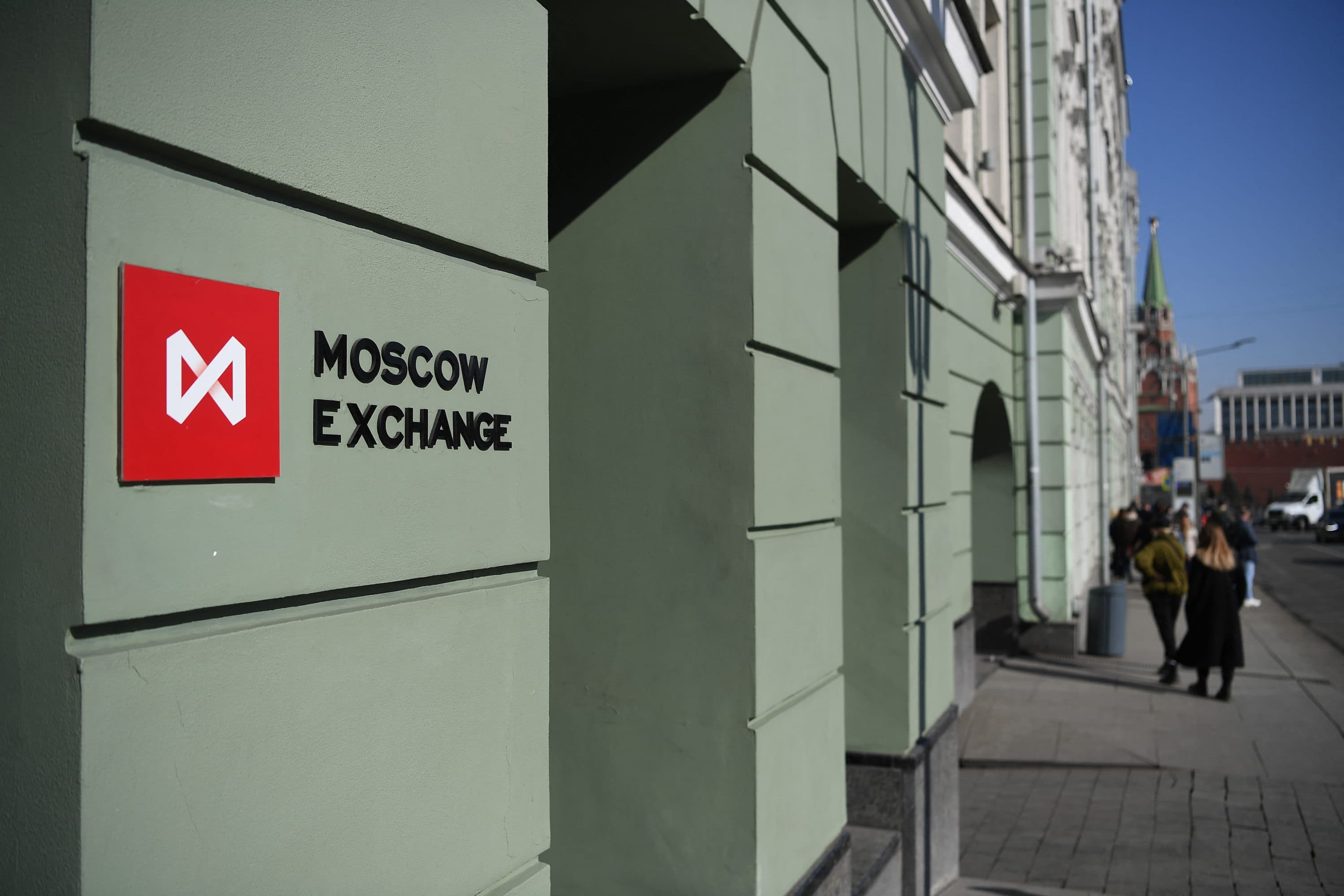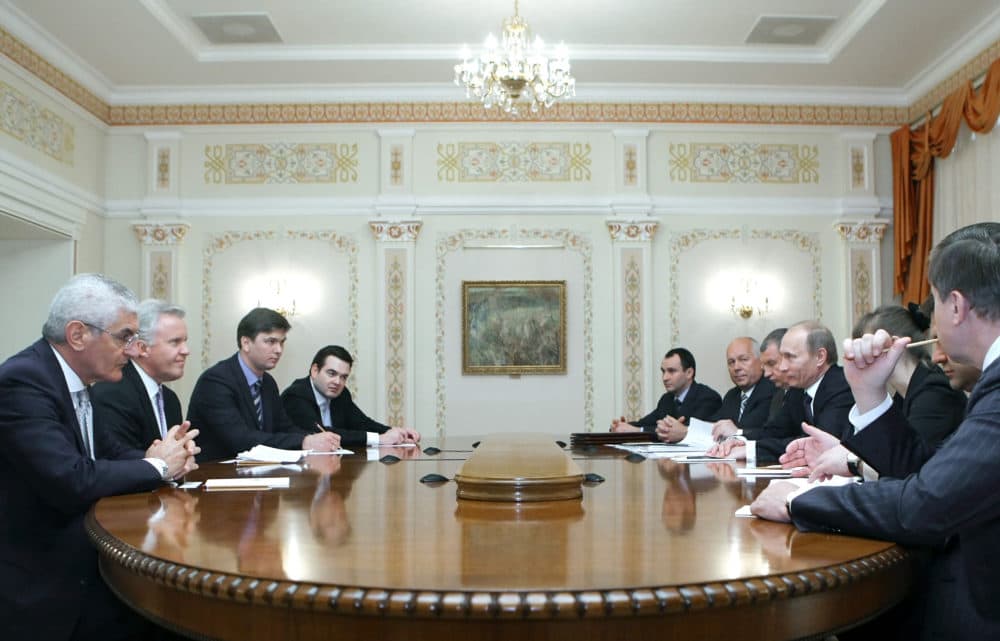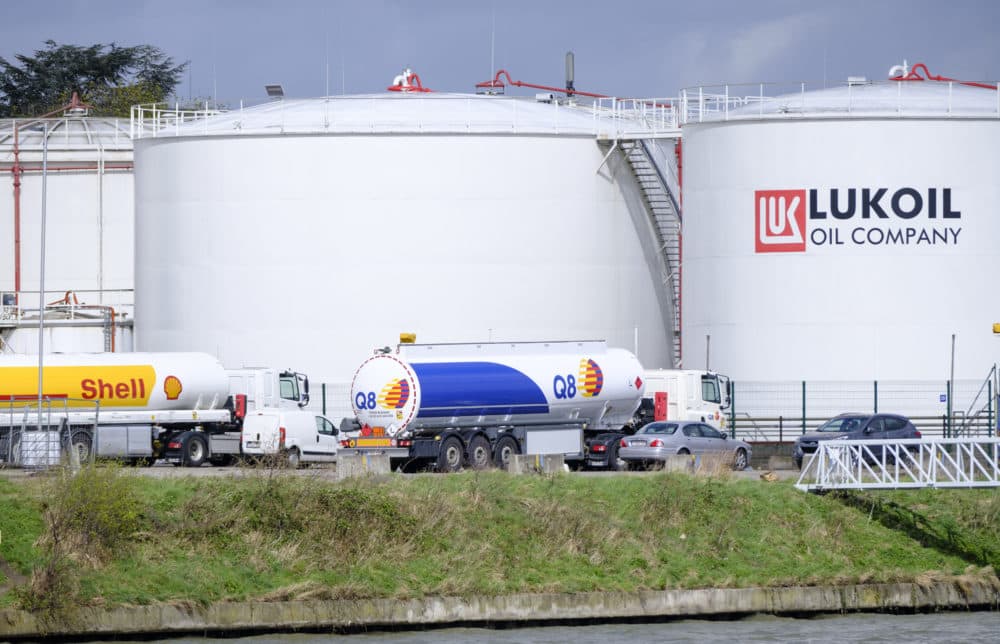Advertisement
As companies vow to sever ties in Russia, a clean break proves complicated

Breaking up with Russia can be hard to do – quite a bit harder, it turns out, than corporate America wants to admit to the public.
From Wall Street banks and consulting giants to life-science companies and public pensions, outrage has been pouring out in press releases since Russia invaded Ukraine on Feb. 24, along with commitments to cut ties there. But in reality, many businesses in Massachusetts and across the country have yet to fully abandon their investments or physical presence in Russia. Some have employees, plants or customers there; others have significant investments in startups, or securities in limbo until they can be sold.
And there are still other companies staying quiet because they haven’t figured out what to do. Ominously, there’s silence in some quarters, executives and Russia experts said, to protect workers from being persecuted by the Russian government.
“It's not simple on many levels, and the difficulties are different for different kinds of businesses,” said Philip Nichols, a professor at the Wharton School at the University of Pennsylvania who studies Russia and other emerging economies. Over time, he said, staying in Russia “will be costlier and costlier in terms of reputation.”
Boston Consulting Group, a management consulting firm with offices around the globe, on March 4 released a statement from its chief executive, Christoph Schweizer, saying it was “horrifying to witness the impact of the escalating war,” and that he was personally “heartbroken.”
The company has done business in Russia since 1990, advising on such projects as how to make Moscow more appealing to tourists, in a 48-page report that notes the language barrier, image problems and unpleasant border checkpoint experiences. The company says it had about 400 employees in Moscow at the time of the invasion.
In its March statement, BCG said it would stop taking new work from Russian clients and would “wind down work where possible,” but honor existing obligations. More than a month later, the company declined to provide any update on the wind-down or what it entails.
It’s just one example of how ensconced many U.S. companies are in Russia. A number of them declined to discuss their Russia plans when contacted by WBUR. While some have publicly said they’ve suspended business, they did not provide details or confirmation that they’ve actually paused or shut down.
Businesses Act In Response To Sanctions And Stakeholders
Western investment in Russia started ramping up shortly after the collapse of the Soviet Union, with companies wading in through the 1990s and early 2000s. It was seen as a new day, and an opportunity to get a piece of an untapped market.
Russia’s military incursions and undemocratic activities created some bumps along the road. But even after Russia took over Crimea in 2014, many companies stayed.
“It’s a large economy, and it’s commodity-rich,” said Lee Ferridge, head of macro strategy at State Street Global Advisors in Boston. Russia today represents 2% of the global economy, he said. “For a company, why would you ignore 2% of the potential market out there?”
Boston-based General Electric Co. expanded in Russia a decade ago, announcing joint ventures in electricity-generating turbines and high-tech medical diagnostics. Russian leader Vladimir Putin himself was at the Sochi signing ceremony for the deals, which were forecasted to generate as much as $15 billion in new revenue.
Advertisement

Then in 2016, GE announced plans to double down, and invest $1 billion in oil and gas, power and transportation.
Some of those ventures have since been sold off, or didn't pan out, according to GE. The company says it currently has about 1,000 employees in Russia and that the country accounts for 1% to 2% of its total annual revenue of $74 billion. A March 8 tweet from GE said it was “suspending our operations” in Russia, but there were two notable exceptions – providing “essential medical equipment and supporting existing power services to the people in the region.”
As for what it’s actually stopped doing in Russia, GE said it suspended its aviation business, to comply with sanctions.
“Business is no longer an amoral actor in society."
Ranjay Gulati
Banks and financial companies must follow sanctions imposed by the U.S. Treasury and European regulators banning financial transactions with large Russian institutions and wealthy oligarchs connected to Putin. But other companies are reacting to the Ukraine invasion based on pressure from customers, investors and other stakeholders. They have to manage the short- and long-term reputation risk in continuing to do business there.
“Business is no longer an amoral actor in society,” said Ranjay Gulati, a professor at the Harvard Business School who studies how organizations thrive. Deciding to stay in Russia or leave, he said, is not just about bottom-line costs. “Demonstrating a moral position also earns you goodwill and trust,” Gulati said, helping business in the long run.
It’s Not, ‘Flip A Switch, We’re Gone,' Experts Say
Drug makers are among those wrangling with ethical and financial calls in Russia. Novartis, a Swiss company with a Cambridge presence, has a manufacturing plant in St. Petersburg, where it makes drugs for the local population. Cambridge-based Biogen also is providing medicines in Russia. Both companies said they would continue existing drug trials in Russia, but would not enroll new participants or initiate new trials.
IPG Photonics Corp. of Oxford has close to 2,000 employees in Russia, working in production and research for its high-power laser products. The company said in a press release it’s now looking to shift some of that work to Germany and the U.S. But the Russian operation is significant, sending about $100 million of product to the Chinese market last year. Sales in Russia were $30 million.
Some companies are managing the conflict from multiple locations. Bain Consulting in a LinkedIn post on March 7 said it was helping its employees in Kyiv stockpile gas, food and water before the invasion. The Boston-based firm also has deep ties in Russia; it says it ceased work in 2020 with the government, including those in military and intelligence.
In its March statement, Bain said it would no longer work with any Russian business, whether state-owned (and therefore likely barred by U.S. sanctions) or private. But its Moscow office will remain open “for now.”
Retailers and sellers of consumer products have been the quickest to say they’ll leave Russia or stop shipments there – McDonald’s, New Balance sneakers, Coca-Cola. For others, it’s more complex. Big financial players, such as Goldman Sachs Group Inc. and JP Morgan Chase & Co., have said they’re winding down their operations. But it’s unclear how long that might take – and whether they’ll actually go entirely.
Citigroup and Bank of America are so far staying open. In a March 14 release, Citi said it was “moving with urgency to complete our assessment” of Russia operations, but warned that it will take time to execute. Bank of America has had about 50 employees there, mainly to provide corporate finance services to non-Russian clients that do business in the country.
“It’s not just, ‘Flip a switch, we’re gone,’ ” said Nichols, the Wharton professor. “There are a lot of difficult decisions and a lot of logistical things that have to happen.”
If there’s more than the usual amount of secrecy around some of these corporate moves, Nichols said, there’s reason for it. The Russian government in some cases will target the local workforce if a company leaves, even threatening arrest or launching investigations of individuals, he said.
“It’s hardball over there,” Nichols said.
A number of Massachusetts companies do business in Russia but have not made public statements about their plans, including Bruker Corp., a publicly traded life-science instruments maker in Billerica. The company has had a presence in Russia for 40 years, and currently has a sales force and customer support in Moscow, according to public records.
Company representatives did not return requests for comment. In its annual report filed with securities regulators in February, Bruker said, “As a result of economic sanctions on Russia we may face disruptions to our operations.”
In the investing world, addressing the Russia situation is complicated in other ways.
Consider the $104 billion Massachusetts state pension fund for teachers and other public employees. The Legislature just passed a measure requiring it to divest of Russian securities — “subject to market availability.” That means dumping stocks like energy giants Gazprom and Lukoil, held in emerging markets funds.

Those Russia holdings were worth about $250 million at the start of the year, according to the pension fund. That’s less than a quarter-percent of the total fund, but it was still real money – worth less than $10 million now, according to pension officials, because Russian markets are closed to foreigners.
No matter how much the pension fund’s managers might like to unload those holdings, no one is buying Russian stocks right now. As investors with a duty to the commonwealth’s retirees, they’d rather make money selling those stocks than take a loss. For now, they’re parked on the sidelines, waiting for a moment to sell.
Multiply this scenario out across the country, and there are holdings formerly worth billions of dollars stuck in Russian securities, with nowhere to go.
Harvard University, in response to student demands, said it has no “direct” investments there. The school’s $53 billion endowment declined to disclose any holdings in Russian securities, claiming officials don’t know for certain what’s in the emerging markets funds run by outside managers.
Endowments and pension funds also have holdings in private equity and venture capital funds with Russia exposure. Bain Capital and Advent International are two large Boston-based private equity firms with investments in several companies that do business in Russia. Both firms said Russia accounts for less than 1% of revenue in most of those cases. One pharmaceutical company Bain invests in, Stada Arzneimittel, has operations in Russia and Ukraine.
If these initial weeks of Russia’s war on Ukraine have caused turmoil for companies, business specialists predict the pressures to leave will only grow.
“In the beginning, it was temporary,” said Gulati, the Harvard Business School professor. “But now, when there's documentary evidence of atrocity, now comes the uncomfortable question – is ‘temporary’ going to be permanent?”
This segment aired on April 14, 2022.

